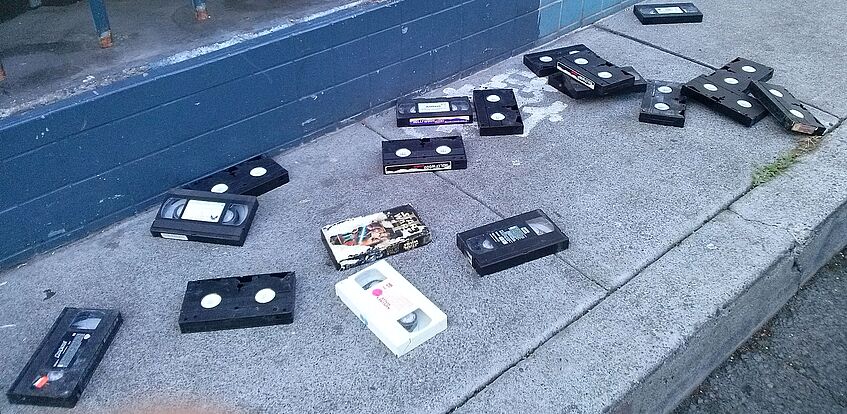Video as Technology of the Self: Self-confrontation, Self-empowerment and Auto/biographical Practices.

San Francisco, Mission District, 22.7.2014 Photo: Renée Winter
Video as Technology of the Self: Self-confrontation, Self-empowerment and Auto/biographical Practices.
This project queries how video technology changed media practices relating to the self. The history of video on tape is a relatively short one. Developed in the late 1950s and used until the 2010s, it had its heyday from the late 1970s to the 1990s. The immediacy of the medium, the possibility of instant playback, along with its increasing prevalence due to its improved affordability fundamentally changed the social practices as regards audio-visual media technology. Already existing media practices based on the use of (substandard) film and photography were revisited, negotiated and updated. Video technology also engendered new practices that can be seen as early traces of today’s digital video use linked to social media and the Internet. Therefore this project also reflects on and historicises current aspects of media use like connectivity, mobility, and the blurring or dissolution of boundaries between the private and the public sphere.
The key hypothesis is that along with the development and spread of video technology, new forms of self-technologies emerged. 1) Videotape allowed for immediate feedback as well as a combination of visual and audible information, which strongly influenced methods of self-confrontation in psychotherapy, education and training. 2) Adjacent to these practices were theorisations of video as self-empowerment. Due to its affordability and the possibilities of easily copying and distributing it, video promised to empower the powerless, to democratise, to enable changes on both a global and a local level. 3) Video changed the home use of (audio)visual media. Not only was video technology affordable and available to broad sections of the public, but its increased mobility and recording time also had a major influence on the auto/biographical use of the camera. Conceptions and representations of the self in terms of public and private changed substantially.
By studying literature, video sources and interviews from the fields of psychotherapy, education, training, activism and home video use, the project answers the following main research questions:
In what ways did video technology enable new media practices that engendered new technologies of the self? How was video used to change, optimise or improve the self, and what were the promises associated with these uses? In what ways do these changes in media technologies of the self interact with historical changes since the 1960s concerning working conditions, means of production, gender relations and family structures?
